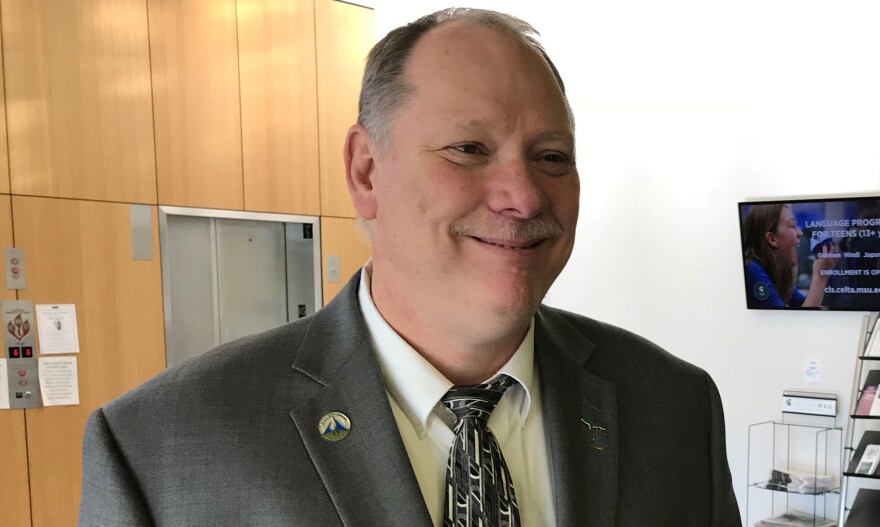Michigan voters will select a new governor on Election Day. The state’s chief executive will preside over a public school system that serves more than 1.5 million students. The six gubernatorial candidates are each outlining their vision for public education in Michigan.
It’s a catchy tag line: Top 10 in 10. In 2016, Michigan set a goal to become one of America’s 10 best-ranked education states within a decade.
In reality, Michigan sits in the bottom third. A recent U.S. News and World Report survey puts us at number 36. And a study last April from the Michigan League for Public Policy found 56 percent of Michigan third graders don’t read proficiently at grade level.
That’s the educational climate awaiting the next governor of Michigan…and the six hopefuls are laying out their strategies to fix it.

“When I’m governor, Michigan’s children will read,” proclaims Michigan Attorney General and Republican nominee Bill Schuette.
“I’m going to grade our schools A through F; a report card for families so they can see which schools in their neighborhood or across the state are performing well and which are not,” he says. “Second, (I’ll) provide grants as incentives for those schools and reward those schools for showing improvement in terms of their test scores.”
Schuette adds he’d create a Michigan Reading Foundation to provide grants for special needs students who require transportation to school, and appoint a state literacy director as a cabinet-level position.
Mr. Schuette has not outlined a specific plan for funding education on his campaign website.

Schuette faces his strongest challenge from Democrat Gretchen Whitmer. The former Senate Minority Leader and interim Ingham County Prosecutor says Michigan’s education system is “failing generations of kids from cradle to career.”
“That’s why the plan that I’ve put on the table starts with universal early childhood education and extends through making sure that you can get an affordable four-year degree or a debt-free two year degree, or a path into the skilled trades,” says Whitmer. “Because there’s not one path for everyone, but everyone in our state deserves a path and it starts with skills, and that’s what education is all about.”
Whitmer says one way to achieve this is through what she calls an “opportunity scholarship” for high school graduates. The program would cost about $100 million. Whitmer says it would be a small but leveraging investment within a $56 billion state budget.
The 2018 gubernatorial race includes four third party candidates.

Libertarian Bill Gelineau says Michigan must allocate resources more evenly among schools. There are nearly 600 school districts in Michigan, and Gelineau says many are so large that parents and students feel lost in the system. He says in 1920, the state had more than 7,000 school districts.
“Parents were much more in charge, they were much smaller, there was a lot more sensitivity to individual issues,” says Gelineau. “And I think we need to move in a direction where rather than having these enormous school districts, that we give parents much more opportunity for them to impact their individual children’s lives.”
Gelineau also believes the state should re-craft Proposal A. That’s the 1994 school funding formula that eliminated property taxes and installed a per-pupil payment system.

Jennifer Kurland agrees. The Green Party nominee and Redford Union school board member says Proposal A has brought about two decades’ worth of cuts to public education.
"What's happened with Proposal A is that it's allowed our state to start taking general fund money that used to be earmarked towards public education and start giving it away to big corporations and tax breaks," Kurland says.
Kurland says Proposal A never fixed inequities in per pupil funding. She supports holding a state constitutional convention to re-vamp it.
Funding is a big concern for U.S. Taxpayers Party candidate Todd Schleiger as well. He’d set aside $20 billion for education, and give teachers a healthy pay raise.
"My program is set up to make sure that a teacher, no matter what grade level, receives a minimum of $60,000 (per year)...because I believe it's all in our teachers' hands," says Schleiger. "I mean, these teachers...some of them are actually putting money out of their own checks for supplies for their kids. The should never happen."

As governor, Schleiger says he’d set aside $1 billion to bring two years of college classes into the public schools, including trade and vocational schools. Schleiger says another $1 billion would be devoted to special ed classes.
Schleiger says he would reallocate more of the proceeds from the Michigan Lottery to fund the schools. He's also banking on the legalization of recreational marijuana -- an issue that will also appear on the November ballot -- to provide additional school revenue.

Natural Law Party candidate Keith Butkovich sees bureaucracy as a burden on public schools. If elected, he would work to decentralize power.
"There's too much at the state level," Butkovich says. "I really think the power should be at the local level, be it the county, be it a school district, or really with the parents."
Many more issues face Michigan’s next governor when he or she takes office in January. An ongoing teacher shortage, crumbling school infrastructure, safety and morale are perennial concerns.
The candidate who wins on November 6 will have two short months to finalize a plan to tackle education issues that have building for decades.








